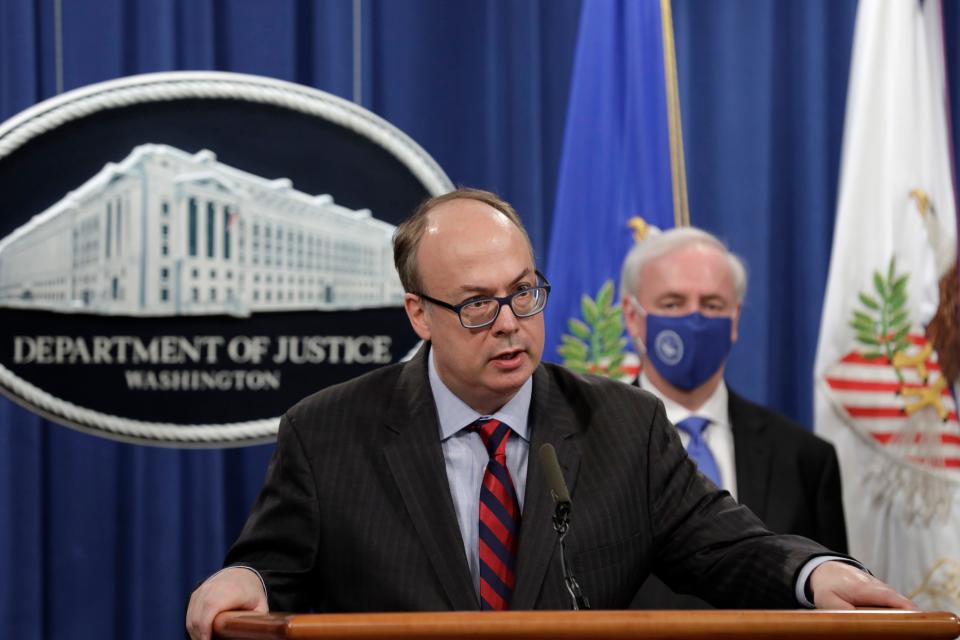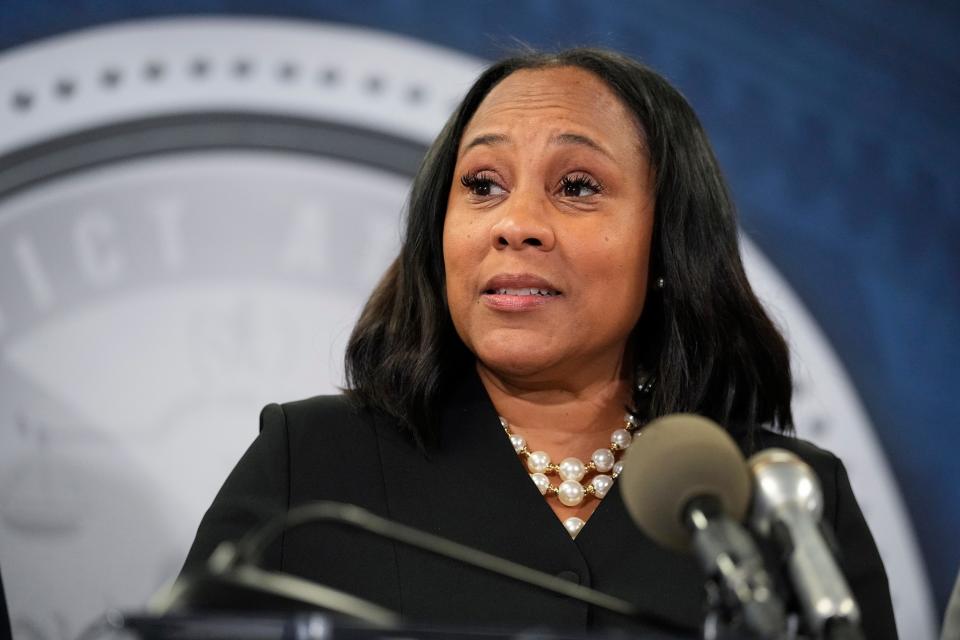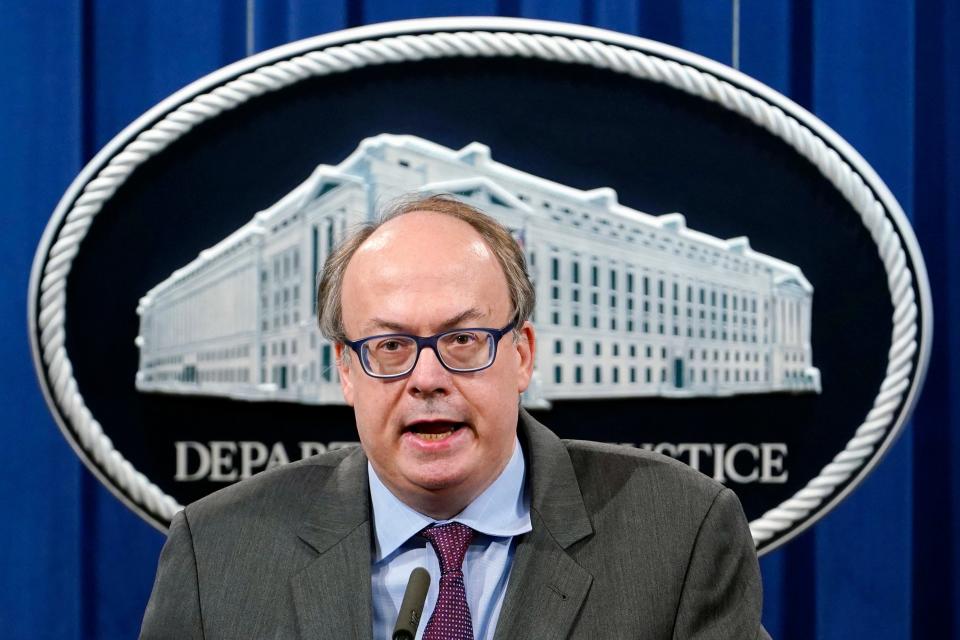Jeffrey Clark, co-defendant of Donald Trump, asks to move Georgia trial to federal court. Here is why that matters
- Oops!Something went wrong.Please try again later.
- Oops!Something went wrong.Please try again later.
- Oops!Something went wrong.Please try again later.
- Oops!Something went wrong.Please try again later.
A lawyer for Jeffrey Clark, a former assistant attorney general who was indicted with Donald Trump in Georgia on election racketeering charges, argued Monday that the case against him should be moved from state to federal court.
U.S. District Judge Steve Jones has already rejected a similar request from Mark Meadows, Trump’s former White House chief of staff. Meadows has appealed the decision.
The case is significant because it will help define when federal officials are protected from state prosecution for carrying out their official duties. At least five of Trump’s co-defendants have asked to move their cases and Trump said he might make the request, too.
Clark's lawyer, Harry MacDougald, argued his actions were part of his official duties. Disputes about the letter filled with false statements about the 2020 election, which Clark is charged with writing, amounts to a disagreement between lawyers.
“What I’m saying is, lawyers can disagree about that without being put in prison,” MacDougald said Monday.
Clark didn't attend the hearing.
Jones set no deadline for ruling in the case. He took about 10 days to decide Meadows' case.

Clark, Trump and Meadows were charged as part of a 41-count indictment in Fulton County Superior Court alleging they were trying to overturn the results of the 2020 election. All 19 co-defendants have pleaded not guilty.
Clark, who headed the environment and natural resources division at the Justice Department, was charged for drafting a letter that was never sent with false statements about Georgia’s election.
Clark drafted the letter on Dec. 28, 2020, for Acting Attorney General Jeffrey Rosen to sign and send to Gov. Brian Kemp and legislative leaders. The letter falsely said the department “identified significant concerns that may have impacted the outcome of the election in multiple States, including the State of Georgia,” according to the indictment.
But the department hadn’t found widespread fraud in the election. Rosen refused to sign the letter.
Richard Donoghue, the acting deputy attorney general, told him the letter “amounted to ‘nothing less than the Department meddling in the outcome of a presidential election.'" Eric Herschmann, a former White House lawyer, told House investigators he was incredulous when he heard Clark’s strategy, calling it “asinine.”
Trump briefly considered naming Clark attorney general but didn’t act after top department and White House lawyers threatened to resign.

Clark argued in trying to move his trial that drafting the letter was part of his official duties, at Trump's request. Clark filed an affidavit Friday saying he was named to acting head the department's civil division on Sept. 1, 2020, and carried out litigation duties without participating in Trump's campaign.
“It is not a good-faith prosecution; it is a political ‘hit job’ stretched out across 98 pages to convey the false impression that it has heft and gravity," MacDougald wrote.
But Jones said he wouldn't consider Clark's statement because prosecutors weren't able to cross-examine him. One of the prosecutors, Donald Wakeford, argued that Clark had presented no evidence that his actions were authorized by Trump. Clark also provided no explanation of what federal law he was trying to enforce or what authority or appropriate expertise he had to be looking into allegations of problems with the election, Wakeford said.
“This case does not involve federal authority,” Wakeford said, arguing for the case to be returned to the state court. “There is no federal authority here to protect.”

This article originally appeared on USA TODAY: Jeffrey Clark asks to move Georgia charges with Trump to federal court

